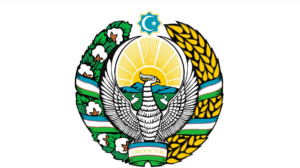
In January-November 2025, Ukraine imported 44.18 thousand tons of coffee and 10.21 thousand tons of tea, which is 0.6% and 13.3% less than in the same period of 2024, according to the State Customs Service.
According to published statistics, in monetary terms, coffee imports increased by 39.2% to $352.18 million compared to $252.97 million for the same period a year earlier.
The main suppliers of coffee to Ukraine in the first 11 months of this year were Poland, which accounted for 15.5% of imports, or $54.67 million in monetary terms, Germany – 13.1% and $46.24 million, and Italy – 11.9% and $41.86 million.
A year earlier, the top three coffee suppliers to Ukraine for the corresponding period remained unchanged, except for their share in supplies: Poland (16.2%, $41.07 million), Italy (15.3%, $38.63 million), and Germany (13.1%, $33.09 million).
Tea imports during January-November 2025 decreased by 11.9% in monetary terms, to $38.92 million, compared to $44.19 million last year.
At the same time, the top three tea suppliers to Ukraine for the first 11 months of this year remained unchanged: Sri Lanka (30.3% or $11.8 million), Kenya (17.6% or $6.86 million), and China (12.5% or $4.85 million). Last year, these countries accounted for 31.6%, 20.1%, and 10.8% of the market, with tea supplies to Ukraine bringing them $13.96 million, $8.87 million, and $4.791 million, respectively.

Deputy Minister of Education and Science Mykola Trofimenko expects that after the war ends, the number of foreign students in Ukraine may grow to 100,000.
“Today, our universities combine many areas of study, including those that are important for society, such as resilience. Europeans cannot understand this. And this, by the way, is one of the factors that will contribute to an increase in the number of foreigners after the war ends. Because now we have 20,000 foreigners studying here, and before the full-scale war there were about 80,000. The goal is to recover after the war ends to 100,000 foreign students,” Trofimenko said in an exclusive interview with the Interfax-Ukraine news agency.
He stressed that everything must be done to ensure that our universities maintain this network of contacts and their ability to teach foreigners.
“And after the war ends, we will see a significant recovery in the number of foreign citizens who will receive education at our Ukrainian universities,” the deputy minister added.
As reported, in 2025, 5,475 foreign students were enrolled in Ukrainian higher education institutions, which is 534 more than in 2024 (4,941).

According to Interfax-Ukraine, Ukrainian restaurant chain Chornomorka is entering Romania: the first establishment in Bucharest is planned to open this winter in the renovated Unirea shopping center (Piata Unirii 1).
The company is already recruiting a team: they are looking for administrators, chefs, as well as waiters, fish sellers, cooks, and a cleaning manager.
The restaurant has an area of 280 square meters and is designed to seat 98-102 people.
The Unirea shopping center (approximately 80,000 square meters) is undergoing renovation, with Colliers Romania overseeing the redesign project. At the same time, a large-scale reconstruction of Piata Unirii is underway, with work expected to take approximately two years.
According to the chain’s website, by December 2025, Chernomorka will have 40 establishments in Ukraine, Moldova, Slovakia, the Czech Republic, and Poland.

Ukraine continues to be one of the largest suppliers of cheese to the Uzbekistan market, ranking among the top 10 exporters of this product. Dairy products traditionally occupy an important place in the diet of the Uzbekistan population, where fermented drinks such as kefir, ayran, and bifidok are particularly popular. At the same time, the most dynamically growing segments are ready-made baby food, drinkable yogurts, and butter, which indicates a gradual expansion of consumer preferences and demand for products with higher added value.
As Olga Gvozdeva, advisor to the director of the Office for Entrepreneurship and Export Development, noted, demographic and infrastructure factors are important for market development. “The average age of the population is 29, and the level of urbanization is only 51%, which creates certain logistical difficulties, especially for products that require a cold chain,” she said.
The growing demand for dairy products in a country that is home to 38% of Central Asia’s population makes Uzbekistan the largest potential consumer market for dairy products in the region.
There is a free trade agreement between Ukraine and Uzbekistan, which provides for a zero customs duty rate for products with a Ukrainian CT-1 certificate. Currently, 16 Ukrainian companies have official permission to export dairy products to Uzbekistan. Among them are:
Agroprosperis LLC
Molochny Aliance LLC
Yuriya-Plus LLC
Lvivmolprodukt LLC
Kyivmolprodukt LLC
Rogan Dairy Factory LLC
Prostokvashino LLC
Podillya LLC
Zarechnoye LLC
Starokostiantynivsky Milk Plant LLC
Shostka LLC
Volynmoloko LLC
Ivano-Frankivsk Milk Plant LLC
Bukovina LLC
Milko Dnipro LLC
Ternopil Milk Plant LLC
Uzbekistan is actively updating its regulatory system. In particular, in 2023, outdated technical regulations were abolished, and new sanitary standards and product safety assessment mechanisms were introduced. Particular attention is paid to compliance with Halal standards, in particular, the national certification system has been in operation since May 2023. The “Foydalilik belgysi” (Usefulness Mark) label was also introduced, which classifies products according to their nutritional value.
Thus, Ukraine has significant prospects for increasing exports of dairy products to Uzbekistan, which, given the growing demand and regulatory changes, is a lucrative opportunity for Ukrainian producers.

Astarta, Ukraine’s largest sugar producer, has commissioned another building for keeping heifers aged two to six months in the Poltava region as part of a large-scale reconstruction of dairy farms, the agricultural holding’s press service reported.
“This is part of a major infrastructure renewal program that Astarta continues to implement throughout 2025. The company is modernizing farms, introducing new animal husbandry technologies, improving energy efficiency, and working to improve livestock genetics. In total, Astarta invested about UAH 543 million in this area during the 11 months of 2025. Last year, about UAH 300 million was invested in the reconstruction and modernization of the industry,” the agricultural holding said, adding that these measures are aimed at increasing production efficiency.
The building has been reconstructed in compliance with requirements for room layout, animal density, microclimate, and sanitary and hygienic conditions, which reduce dependence on external resources and make the farm more autonomous.
Astarta systematically invests in upgrading livestock infrastructure, improving animal welfare, applying modern technologies, and increasing energy efficiency. The opening of each new facility is another step towards strengthening the competitiveness of our livestock farming, implementing good animal welfare practices, and strengthening the company’s production base,” said Yaroslav Kushnir, Director of Astarta’s Livestock Department.
The company is convinced that systematic work on the development of livestock farming yields stable results — the agricultural holding remains the largest producer of industrial milk in Ukraine.
Astarta is a vertically integrated agro-industrial holding operating in eight regions of Ukraine and the largest sugar producer in Ukraine. It includes six sugar factories, agricultural enterprises with a land bank of 220,000 hectares and dairy farms with 22,000 head of cattle, an oil extraction plant in Hlobyn (Poltava region), seven elevators, and a biogas complex.
In the first half of 2025, Astarta reduced its net profit by 10.3% to EUR47.11 million, and its consolidated revenue decreased by 29.3% to EUR320.71 million.